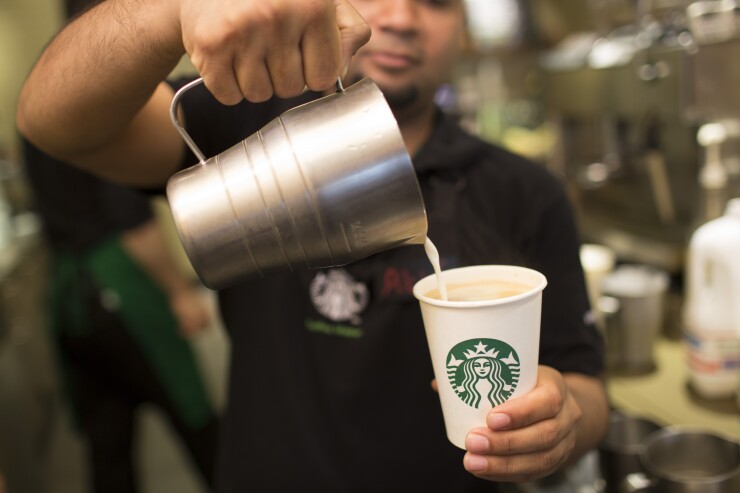Starbucks is taking steps to improve its employees’ mental health with a new long-term initiative that includes an enhanced employee assistance program and mental health training for store managers, beginning in the second quarter of next year.
The coffee giant is partnering with Mental Health First Aid, a national program that teaches people the skills they need to respond to the signs of mental illness and substance use, to offer training to managers. By January, Starbucks employees in the U.S. and Canada will also have access to subscriptions for the app Headspace, which offers meditation techniques to users.
“We brought 12,000 store leaders together for an unprecedented session on mental well-being and emotional first aid,” Starbucks CEO Kevin Johnson says in a statement. “That was just the first step in a new long-term initiative to take a stand, help break the stigma around mental health, and get even more partners and their loved ones the support they need.”
See also:
The coffee company has been making an effort to beef up its benefits. Last year, in the wake of the federal tax overhaul, the company said it
In addition to the new mental health benefits, Starbucks will also partner with organizations including the Born This Way Foundation, a mental wellness non-profit, and Team Red White & Blue, a non-profit for veterans, to help break the stigma around mental health.
See also:
One in five American adults experience some form of mental illness in any given year, according to the National Alliance on Mental Health. Additionally, one in every 25 adults is living with a serious mental health condition such as schizophrenia, bipolar disorder or long-term recurrent major depression.
Employees are demanding better mental health benefits from their employers. Only 25% of U.S.-based managers, across a variety of industries, have been trained to refer employees to mental health resources, according to the Society for Human Resource Management. Employers including






